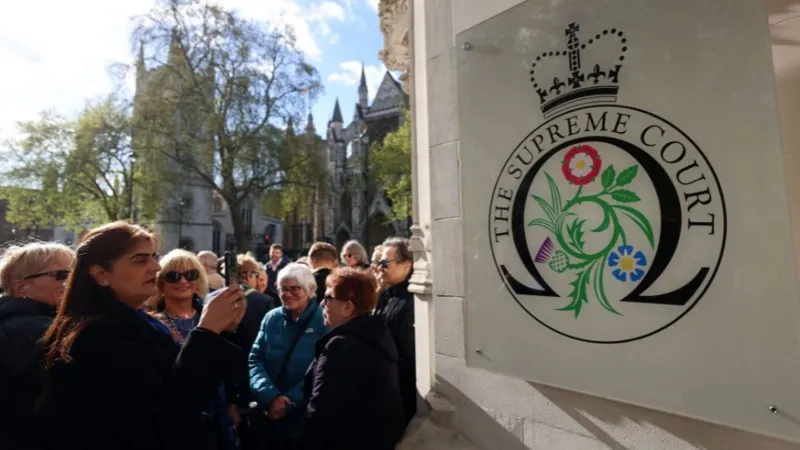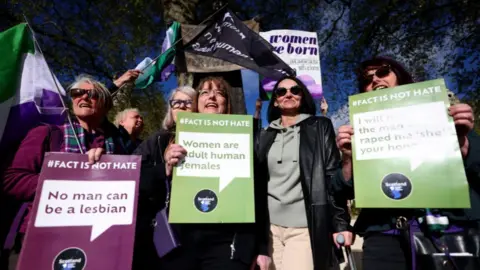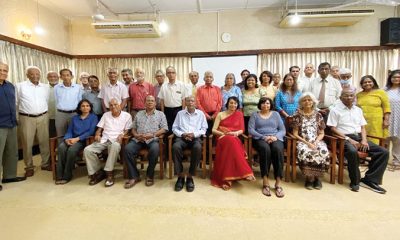Latest News
Afghanistan storm into Super Eight; New Zealand knocked out

Afghanistan booked their place in Super Eight, thereby knocking New Zealand out of men’s T20 World Cup 2024 after a seven-wicket win over PNG in Tarouba.
Their win was set up by new-ball spells from fast bowlers Fazalhaq Farooqi and Naveen-ul Haq that saw PNG lose five wickets inside the powerplay. A total of four run-outs did not help PNG’s cause either as they were dismissed for 95.
Afghanistan romped home with 29 balls to spare with Gulbadin Naib staying unbeaten on 49. The result meant that for the first time since 2014, New Zealand bowed out before the semi-final stage of a men’s World Cup – ODI or T20.
With six points and a net run rate of 4.230, Afghanistan lead Group C.
A target of 96 would not have worried Afghanistan. Rahmanullah Gurbaz and Ibrahim Zadran had added century stands for the opening wicket in each of their first two games. Gurbaz had struck fifties in those outings. As a result, the middle order had barely had time in the middle. On Thursday, Afghanistan’s worst fears nearly came true.
Semo Kamea brought in for vice-captain Charles Amini, almost struck first ball when Ibrahim was ruled out lbw. He used the DRS to his benefit but lost his stumps three balls later while trying to attack an inswinger from Kamea. In the next over, fast bowler Alei Neo knocked over Gurbaz, who also charged down to heave one across the line. PNG could have put even more pressure on Afghanistan had wicketkeeper Kiplin Doriga hung on to Naib’s outside edge in the fifth over.
PNG were left to rue those chances on a surface with dry grass, which, as Daren Ganga had said in his pitch report, contributed to variable bounce. The proof was in Azmatullah Omarzai’s dismissal when a length ball from Norman Vanua barely got up and bowled him.
But Naib, in the company of Mohammad Nabi, countered the conditions to ensure Afghanistan faced no further hiccups.
PNG made almost the right start after being sent in. A double through fine leg, a single through point, a cut shot for four – they were ticking along without any risk. But it all went south when captain Assad Vala was run out in the second over. Going for the third run, his bat was in the air at the non-striker’s end when Gurbaz nailed a direct hit at the bowler’s end. Had Vala slid his bat, he would have been safe.
Farooqi then did what he does best: flummox batters with swing. He had Lega Siaka caught behind by Gurbaz diving full length to his right and then, on the next ball, Sese Bau also nicked one behind.
When Naveen got Hiri Hiri to chop one onto his stumps on the first ball of the fourth over, PNG had lost four wickets in nine balls. Batting first on a used surface that hosted the West Indies-New Zealand clash just 24 hours ago, that was handing over advantage on a platter.
When Naveen crashed through Tony Ura for his 50th T20I wicket, PNG were reduced to 30 for 5. PNG needed to bat a few overs safely at that point, and Chad Soper and Doriga did that for 24 balls while scoring 16 runs. But in the tenth over, both were guilty of ball-watching, which resulted in Soper being run out.
Doriga then used the slog sweep and sweep to rotate strike against Rashid Khan and Noor Ahmad. Neo punished the seamers when they bowled on his pads. The pair was effective without being enterprising and added 38 off 34 balls.
Once Doriga was done in by a wrong’un from Noor to be trapped lbw, PNG lost their last three wickets for just seven runs.
Brief scores:
Afghanistan 101 for 3 in 15.1 overs (Gulbadin Naib 49*; Alei Neo 1-26, Semo Kamea 1-16, Norman Vanua 1-18) beat Papua New Guinea 95 in 19.5 overs (Kiplin Doriga 27; Fazalhaq Farooqi 3-16, Naveen Ul-Haq 2-04, Noor Ahmad 1-14) by seven wickets
[Cricinfo]
Latest News
China’s Xi hails ‘new golden era’ with Malaysia during trade tour

Chinese President Xi Jinping has met Malaysia’s King Sultan Ibrahim in Kuala Lumpur as part of a regional push to shore up Beijing’s trade relationships.
The diplomatic stop on Wednesday marks the second leg of Xi’s three-nation tour, which also includes Vietnam and Cambodia, and comes amid sharp tariffs imposed by the United States that are reshaping the global economic landscape.
Sultan Ibrahim welcomed Xi in a colourful ceremony at the golden-domed Istana Negara palace before his meeting with Malaysian Prime Minister Anwar Ibrahim at the administrative capital of Putrajaya.
Xi touted a “new golden era” of Chinese-Malaysian relations, following the 50th anniversary of diplomatic ties last year. The king announced new cooperation between the countries in various fields, including artificial intelligence.

“This is a hugely significant visit,” said Al Jazeera’s Rob McBride, reporting from Putrajaya. “It takes place during this unprecedented trade war that is developing with the United States, with both Malaysia and China finding themselves in the middle.”
Khoo Ying Hooi, an associate professor in the department of international and strategic studies at Malaya University, said the visit offered a chance to “test the waters for regional solidarity” amid the US trade disruptions.
“It’s not just about friendship, it’s about realigning the regional centre of gravity towards Beijing,” she said.
Malaysia is the current chair of the Association of Southeast Asian Nations (ASEAN) bloc, whose members are among the hardest hit by new US tariffs.
ASEAN member Vietnam, a manufacturing powerhouse, was slapped with 46 percent tariffs, and Cambodia, a significant producer of low-cost clothing for big Western brands, was hit with a 49 percent duty.
Malaysia, Southeast Asia’s third-largest economy, was hit with a lower tariff of 24 percent. Though the measures have been paused for 90 days, President Donald Trump has warned that no country is “off the hook”.
[Aljazeera]
Latest News
Severe traffic reported on Ella-Wellawaya road due to inclement weather

Police urge motorists who intend to use the Ella – Wellawaya Road to use alternative roads as there is a severe vehicle congestion due to inclement weather condition.
Latest News
UK Supreme Court backs ‘biological’ definition of woman

The UK Supreme Court has unanimously backed the biological definition of “woman” under the 2010 Equality Act.
It marks the culmination of a long-running legal battle which could have major implications for how sex-based rights apply across Scotland, England and Wales.
Judges sided with campaign group For Women Scotland, which brought a case against the Scottish government arguing that sex-based protections should only apply to people that are born female.
Judge Lord Hodge said the ruling should not be seen as a triumph of one side over the other, and stressed that the law still gives protection against discrimination to transgender people.
The Scottish government argued in court that transgender people with a gender recognition certificate (GRC) are entitled to the same sex-based protections as biological women.
The Supreme Court was asked to decide on the proper interpretation of the 2010 Equality Act, which applies across Britain.
Lord Hodge said the central question was how the words “woman” and “sex” are defined in the legislation.
He told the court: “The unanimous decision of this court is that the terms woman and sex in the Equality Act 2010 refer to a biological woman and biological sex.
“But we counsel against reading this judgement as a triumph of one or more groups in our society at the expense of another, it is not.”
He added that the legislation gives transgender people “protection, not only against discrimination through the protected characteristic of gender reassignment, but also against direct discrimination, indirect discrimination and harassment in substance in their acquired gender”.
Campaigners who brought the case against the Scottish government hugged each other and punched the air as they left the courtroom, with several of them in tears.
The Equality Act provides protection against discrimination on the basis of various characteristics, including “sex” and “gender reassignment”.
Judges at the Supreme Court in London were asked to rule on what that law means by “sex” – whether it means biological sex, or legal, “certificated” sex as defined by the 2004 Gender Recognition Act.
The Scottish government argued the 2004 legislation was clear that obtaining a GRC amounts to a change of sex “for all purposes”.
For Women Scotland argued for a “common sense” interpretation of the words man and woman, telling the court that sex is an “immutable biological state”.

Outside the Supreme Court, For Women Scotland co-founder Susan Smith said: “Today the judges have said what we always believed to be the case, that women are protected by their biological sex.
“Sex is real and women can now feel safe that services and spaces designated for women are for women and we are enormously grateful to the Supreme Court for this ruling.”
A UK government spokesman said: “This ruling brings clarity and confidence, for women and service providers such as hospitals, refuges, and sports clubs.
“Single-sex spaces are protected in law and will always be protected by this government.”
Conservative leader Kemi Badenoch described the ruling as a “victory for all of the women who faced personal abuse or lost their jobs for stating the obvious”.
But Scottish Green MSP Maggie Chapman, a prominent campaigner for trans-rights, said: “This is a deeply concerning ruling for human rights and a huge blow to some of the most marginalised people in our society.
“It could remove important protections and will leave many trans people and their loved ones deeply anxious and worried about how their lives will be affected and about what will come next.”
The Scottish government has not yet commented on the ruling.
[BBC]
-

 News5 days ago
News5 days agoSuspect injured in police shooting hospitalised
-

 Features6 days ago
Features6 days agoRobbers and Wreckers
-

 Business5 days ago
Business5 days agoSanjiv Hulugalle appointed CEO and General Manager of Cinnamon Life at City of Dreams Sri Lanka
-

 Business6 days ago
Business6 days agoBhathiya Bulumulla – The Man I Knew
-

 Business7 days ago
Business7 days agoNational Anti-Corruption Action Plan launched with focus on economic recovery
-

 Features4 days ago
Features4 days agoLiberation Day tariffs chaos could cause permanent damage to US economy, amid global tensions
-

 Business4 days ago
Business4 days agoMembers’ Night of the Sri Lanka – Russia Business Council of The Ceylon Chamber of Commerce
-

 Features4 days ago
Features4 days agoMinds and Memories picturing 65 years of Sri Lankan Politics and Society






















